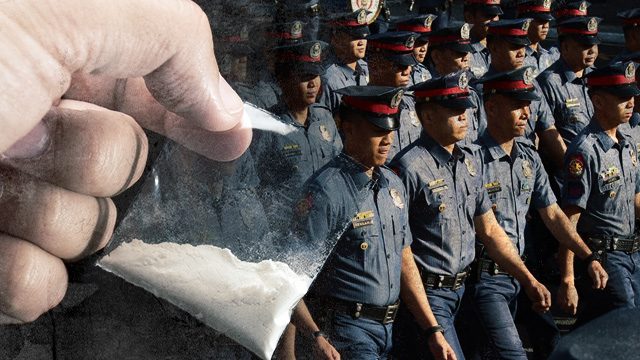SUMMARY
This is AI generated summarization, which may have errors. For context, always refer to the full article.

READ: Drug addiction is a health problem. Somebody please tell the President.
MANILA, Philippines – In Pasig City, one private drug treatment and rehabilitation center helps the local police understand drug addiction as a health problem.
“All the police officers of Pasig, the chief of police sends them to us so that they can have a basic understanding on addiction,” Fareda Fatima Flores, who works at the Metro Psych Facility-Roads and Bridges to Recovery, told Rappler in Filipino.
According to Flores, who is also with the Philippine Psychiatric Association, some drug users behave the way they do during police operations because of the effect of the drugs on their brain. She recalled one patient, who used to take a lot of drugs, even bought a gun after President Rodrigo Duterte assumed office.
“I asked, what’s the gun for? ‘It’s for when a police officer comes, I’ll fight back.’ Because they’re already high. For me, personally, I believe it’s because they don’t surrender voluntarily. They really fight back,” she explained.
Another patient told her: “Do you know what I fear, doctor? To die sober.”
Flores said this is the effect of an impaired prefrontal cortex, a part of the brain which is “for logic and decision-making.” (READ: Inside the brain of a drug user)
“Because the decision-making is no longer there, right? So you’re aggressive and full of emotions. So what will happen to you if you’re just full of emotions? Anger, fear, doubt – that’s hard, right? Anyone would feel the same if there’s nothing controlling your emotion anymore, telling you that’s wrong, what you’re thinking is wrong,” she said.
Flores has experience helping police officers understand mental health issues. From 2007 to 2009, she was one of those tapped by the National Police Training Institute (NPTI) to provide police officers with a mental health education program.
“The effect is, they are kind with the mentally ill, they refer them correctly. Because we teach schizoprenia, bipolar, depression, and addiction, plus how to communicate with them,” she explained.
Flores said it would be good to provide a similar program for police officers today, considering the Duterte administration’s ongoing campaign against illegal drugs.
Unfortunately, the initiative by Police General Samson Tucay of the NPTI was not institutionalized, according to Flores.
At least one city is doing it. In Pasig, the Metro Psych Facility-Roads and Bridges to Recovery talks to police officers about addiction.
“You boost their morale, because it’s not extrajudicial killing after all. At least they will feel that someone understands them. Because I tell them, ‘When you apprehend, be careful, because they will really fight back because they’re high,” she said.
“Nanlaban (They fought back)” is a common explanation for the deaths of drug suspects under Duterte’s war on drugs, which has already seen the death of 3,135 drug suspects in police operations as of June 13.
Commission on Human Rights chairperson Chito Gascon said “the self-defense argument constitutes an admission of the killing and therefore imposes on the police officer the burden of providing the proof in a court of law.”
Yet Gascon noted that “not a single police officer has yet to be held to account” for these deaths. – Rappler.com
Add a comment
How does this make you feel?
There are no comments yet. Add your comment to start the conversation.